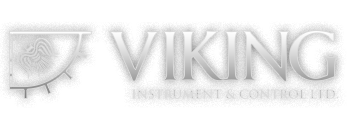Industrial thermometers can accurately measure temperatures in industrial processes. Available in a wide range of models, the industrial thermometers can withstand the toughest environments and offer several advantages from vibration resistance, ease of reading the dials and hermetically sealed cases that will prevent the entry of moisture. Industrial thermometers are made from different durable materials like brass, carbon steel or stainless steel to protect the sensors and to enable accurate and precise temperature measurement.
Different kinds of industrial thermometers and their uses
- Traditional thermometers (spirit-filled) – not only is this the cheapest kind of thermometer but the most common for homes and non-specialist applications where traceability is not a requirement. The thermometer is easy to read in both Centigrade and Fahrenheit with very little requirements for maintenance.
- Dual sensor or multiple sensor thermometers – these kinds of industrial thermometers are used in professional environments particularly for indoor and outdoor temperature comparisons and monitoring of storage areas. This type of thermometer consists of a main display unit and external temperature sensors with the readings displayed on the main unit.
- Irreversible temperature levels – ideal for processes where specific temperature values should not be exceeded such as engine or bearing monitoring. Each foil segment on the label is sensitive to a different temperature which when exposed to its rating will turn black. The color change is irreversible even after the object being measured has cooled down.
- Fixed and wired probe thermometers – designed to deliver instant temperature readings of foods, liquids and semi-solid samples through its fixed probe. This type of industrial thermometer is considered ideal for catering, laboratories and retail outlets. The wired probe thermometers are similar to fixed probe thermometers however; the difference is that the probe is attached to the thermometer through a wire to maximize utility without compromising accuracy.
- K-type thermometers – able to deal with extreme temperatures found in laboratories and industries. Industrial applications for this kind of thermometer are those that require high precision and can facilitate a range of interchangeable plug in probes for air, liquid, penetration and surface temperature measurement. The main advantage of this industrial thermometer is high accuracy and fast temperature measurement response. Since it is manufactured to be impact resistant, it can be used even in the harshest of environments.
- Data-logging thermometers – allows for continuous temperature measurements in real time or downloaded to be stored in computers. The design of this industrial thermometer is to record temperature history in critical areas such as storage rooms, transportations and laboratories where there is need to submit records to the management for traceability. The analysis software will provide a graphical display of data showcasing total readings and a visual indication of alarm levels throughout the logging period.
- Infrared thermometers – are frequently equipped with lasers to measure radiated heat. Non-contact measurements of very high/low surface temperatures are allowed. This type of industrial thermometer is suitable for air conditioning systems, automotive industry and food preparation industry. It is not simple to operate these industrial thermometers as there are several factors that have to be considered like laser spot-size and the emissivity value of the surface being measured.


